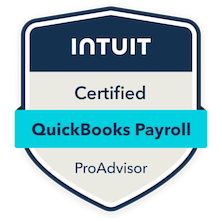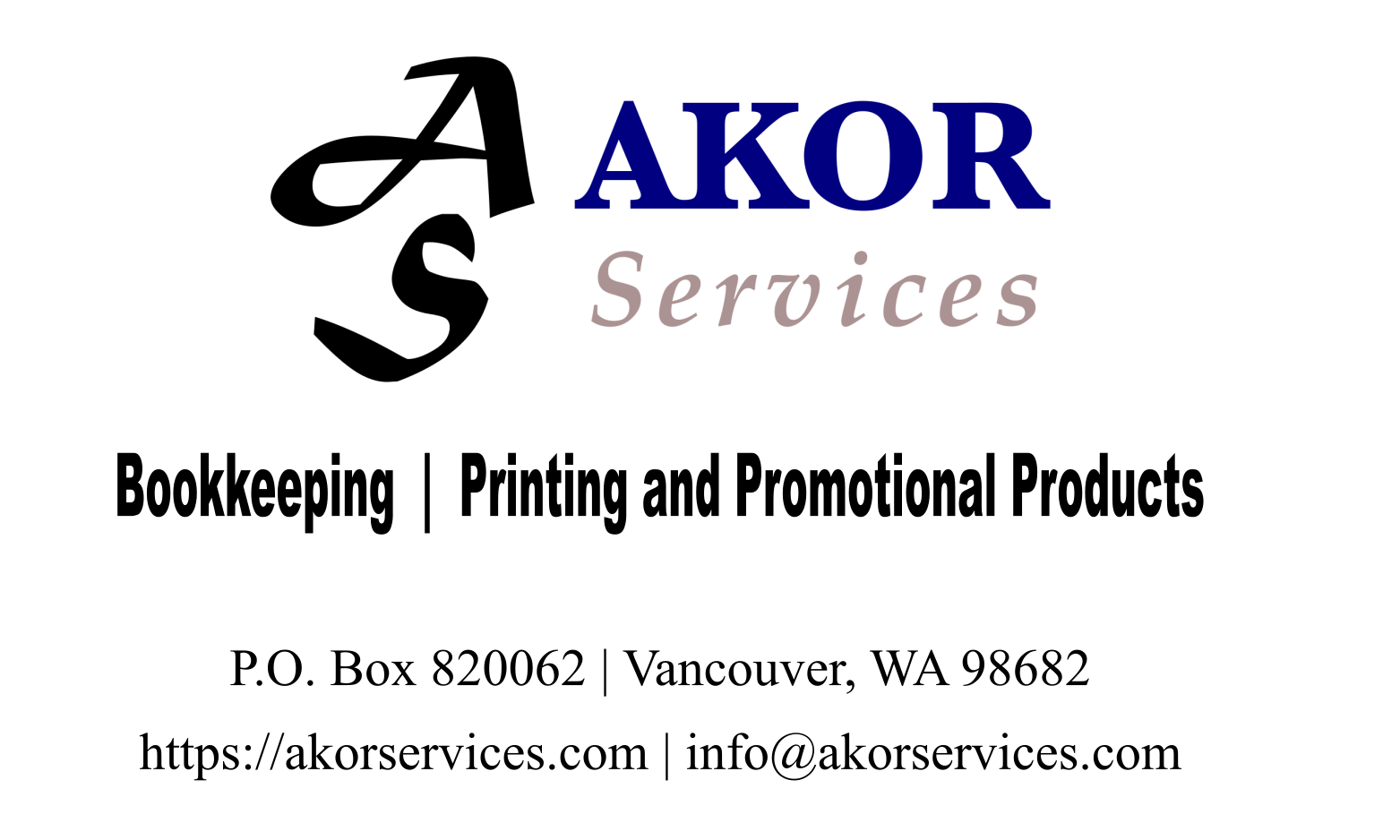
When Should A Business Hire A Bookkeeper?
Running a business is an exciting endeavor, but as operations grow, so do financial responsibilities. Many entrepreneurs start by managing their own books, but at a certain point, the need for a professional bookkeeper becomes evident.
There is no set financial benchmark to recognize the actual point in time when a bookkeeper should be hired (internal or outsourced). It depends on a lot on other factors such as:
- What is the owner’s participation level in the business, and what are their skills best-suited for? Is it up-front sales, technical issues, prospecting, overall business management or a myriad of other business possibilities?
- What type of business is it? Is it a services business, manufacturing, construction, sales, production, automotive/repair, medical/dental/chiropractor, restaurant. etc?
- Are there multiple business site locations?
- Are there a variety of divisions/types in the business?
- Is there accounts receivable and/or accounts payable to manage? Are there invoices, credit memos, etc to manage, and is it being done well now?
- Have you accurately assessed the skill levels of existing employees and their ability to handle bookkeeping and accounting in-house?
- How many employees are in the business, and how is payroll managed? Is it managed accurately and in compliance with state and federal law and other regulatory guidelines?
- Is the owner/manager actually skilled in bookkeeping, accounting and taxes?
- How many, and what types of assets does the business own? Vehicles, equipment, buildings, high value assets, etc?
- Do you manage an inventory, and are you confident it is accurate, timely and recorded properly?
- Are there loans that the business has that need to be tracked, along with interest, principal, etc?
- Are there business investments that must be tracked?
- Are you confident that your sales taxes and payroll taxes are being recorded and reported accurately?
- Does your business have multiple checking and savings accounts and multiple company credit cards?
- How many transactions a month is your business handling, and are they being well-managed now?
- Are there others that have an interest in your company and how it is managed, like investors or shareholders?
- Are your accounts being reconciled monthly currently? This is critical!
- Currently, how difficult is it for your company to file the required monthly, quarterly or annual tax and payroll reports and 1099 filings? Are they timely currently?
- How timely and accurate are your monthly financial reports? Do you trust your current numbers on your balance sheet, profit and loss statement and cash flow reports? Do you trust them to the point that you could print them off and file your tax returns with them immediately if needed?
Depending on the answers to these, and many other questions, it may be time to hire a dedicated in-house, or an outsourced bookkeeper. If you look at the expense of an in-house accounting staff and it doesn’t make sense to your company, then an outsourced service may make great sense to you.
Outsourced Accounting
Until such time as your business requires an in-house accounting staff, outsourcing your needed services can make a lot of sense for a business. Outsourcing can make a lot of sense when your required financial processes can’t justify the need for a full time accounting staff. In many cases, some businesses never have an in-house staff.
Consider a professional payroll service to handle the myriad of details required to produce a timely and accurate periodic payroll and manage all the legal documents (W-2s, W-4s, 1099s, mandated garnishments, etc). This is often the detail that necessitates outsourcing due to the time critical nature of employee paychecks and the constant flow of data, especially involving cash flow. Time collection is often part of this process. Payroll is one of the quickest ways that businesses can get in trouble and have to pay penalties and fees if everything isn’t handled in a timely and accurate manner.
Many state and federal guidelines exist around payroll requirements and associated time off and benefits programs. Many times, this process alone illustrates the need for company Human Resources personnel and company policies surrounding all these issues, which may also be outsourced.
Consider an outsourced bookkeeper for monthly accounting duties, including managing bank and credit card accounts, verification and reconciliation and financial statements and tax reports. Bookkeepers can work with your payroll services to include all necessary payroll numbers. Your bookkeeper will typically file your normal sales tax reports (if applicable). Be sure to determine exactly who will file any required state and federal payroll reports.
Consider that your bookkeeper will take all the monthly comprehensive details and provide them to a tax accountant or CPA of your choice for filing your taxes.
These arrangements can provide you with the most cost effective way to handle the important financial management of your business until such time as you decide to have your own in-house finance team. This will give you the accountability that you need, while relieving your business of the need to handle all of this for yourself. This will allow you to concentrate on your sales processes and taking the best care of your customers.
Recognizing when to hire a bookkeeper can be the difference between financial clarity and costly chaos. Here are the key signs that it’s time to bring in an expert.
Overwhelming Financial Tasks
If bookkeeping is taking up more time than actual business operations, it’s a clear indicator that help is needed. Business owners should focus on growth strategies, customer service, and innovation—not getting lost in financial spreadsheets. The more your company grows, the more accountability, documentation, and financial analysis is necessary. Allow your financial team to provide you with the details to help you clearly understand all aspects of your business and to make good decisions, rather than attending to all the detail and tracking that goes into running your business.
Frequent Accounting Errors
Mistakes in financial records can lead to incorrect tax filings, cash flow issues, and even legal troubles. If financial discrepancies are becoming common, a professional bookkeeper can ensure accuracy and prevent costly errors. Other than the owner, no one has more interest in financial details of your business than your state Department of Revenue and the Internal Revenue Service. The details are important and must be timely and accurate.
In the early days of a business it is common for the owner to handle the books. Then, as the business grows, it is tempting for the owner to assign bookkeeping duties to an existing employee. If errors, or inattention to the proper details are increasing and on-going for months at a time, this is another clear sign that it is time for professional financial help.
Tax Season Stress
Many businesses scramble to get their financial records in order when tax season arrives. If tax preparation feels overwhelming or results in unexpected delays or liabilities, a bookkeeper can maintain organized records year-round, making tax time smooth and predictable.
Cash Flow Uncertainty
A business without a clear understanding of cash flow can quickly run into financial trouble. Bookkeepers provide real-time insights into income and expenses, helping business owners make informed financial decisions. It is hard for owners and managers to make well-informed business decisions if financial numbers are not reliable, timely and presented in a manner that makes sense to them. Bookkeepers, Accountants, CPA’s and other tax planners are critical to this process.
Business Growth and Expansion
As a business scales, financial complexities increase. New employees, higher sales volume, and multiple revenue streams all require diligent financial management. A bookkeeper ensures financial records keep up with the pace of growth.
Missed Payments and Late Invoices
If bills are being paid late or invoices aren’t being followed up on, it can hurt business relationships and credit standing. A bookkeeper helps manage accounts payable and receivable, ensuring smooth financial transactions.
Lack of Financial Insights for Decision-Making
Without up-to-date and accurate financial reports, business owners are making decisions in the dark. A bookkeeper provides detailed financial statements, allowing for data-driven business strategies.
The Bottom Line
While hiring a bookkeeper may seem like an added expense, it is an investment in financial stability and business growth. By recognizing the signs early, businesses can avoid financial pitfalls, stay compliant, and focus on what truly matters—success. If you’re experiencing any of these challenges, it’s time to consider bringing a bookkeeper on board.
Allen Beck
AKOR Services Bookkeeping
P.O. Box 820062
Vancouver, WA 98682
(503) 427-8553
Bookkeeper@akorservices.com




#bookkeeping #WhenToHireABookkeeper #AKORServices #VancouverWA



















